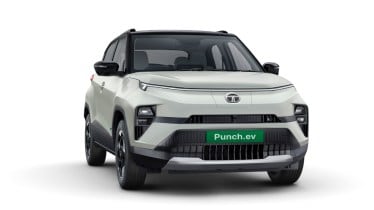Tata Motors, one of the leading passenger vehicle makers in the country is optimistic on the uptick in demand for green vehicles and consumer acceptance of electric vehicles.
In fact, the company says that while at present is expanding and introducing CNG and electric variants in its existing portfolio it has not seen any cannibalisation of sales.
In a virtual media interaction, P B Balaji, CFO, Tata Motors shared that the company expects that electric vehicles will constitute 25-30 percent of its new car sales, and a similar share would come from the CNG portfolio by FY2025-26.
“If you look at the example of Tata Punch, which was recently introduced in an electric avatar it has helped expand volumes. When it was first introduced without CNG or electric offering the Punch used to see monthly sales of around 10,000 units. In the last few months, it has increased to 18,000 units (after the introduction of CNG and electric),” said Balaji.
Furthermore, he said that Tata Motors focusing on accelerating its electric vehicle business, which will include introducing new models on the Pure.EV platform, expanding network, and partnering charge point operators, will bring in more consumer acceptance. “There is a full 360-degree offensive underway, and we have a strong focus on electric vehicles.”
Hybridisation
When queried about the stance on hybrids, he said that one should look at the destination and not the intermediate route, in this case hybrid is a technology and not the destination. The government has a limited budget, and it cannot support everything, and hence it has chosen to support the technology of the future (electric).
He believes that similar to petrol, diesel, and CNG vehicles do not get any special subsidy; hybrids too should be seen similarly.
“We firmly believe and have been explicit for valid reasons. As far as a hybrid is concerned, it is a CAFÉ compliant technology, that’s why they (OEMs) are investing to avoid being penalised and are compliant with emission standards. At present, no subsidy is available for CNG, petrol, diesel vehicles, and hybrids should be looked at in that same manner. We firmly believe any support should go to the viability gap issue; CAFÉ is a good enough penalty to make everyone compliant. Today, we don’t have a conversation for subsidies for CNG, so we must look at it that way,” he said.
